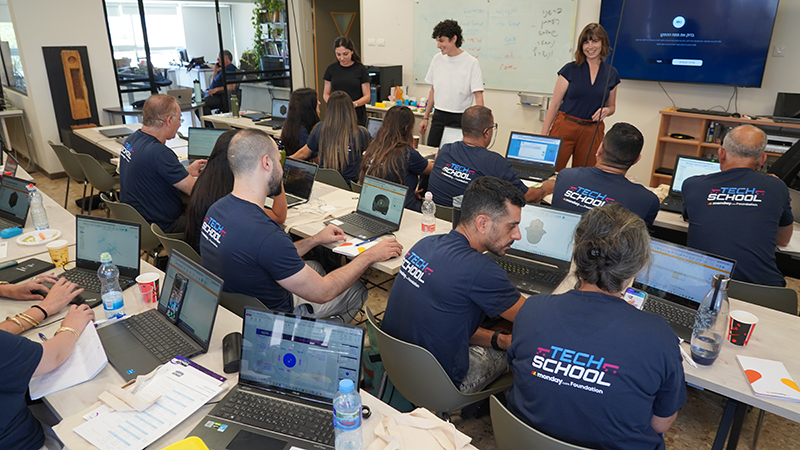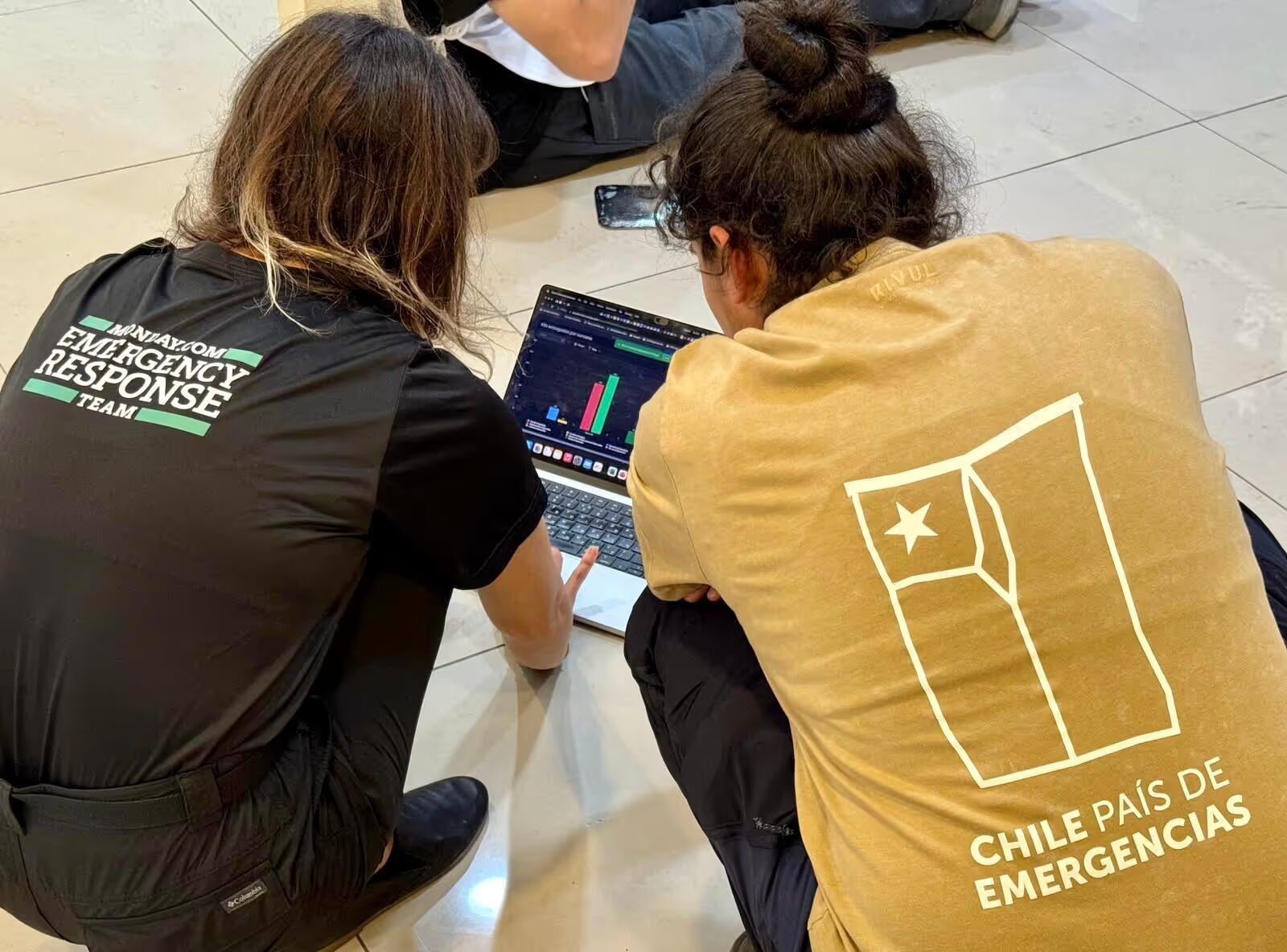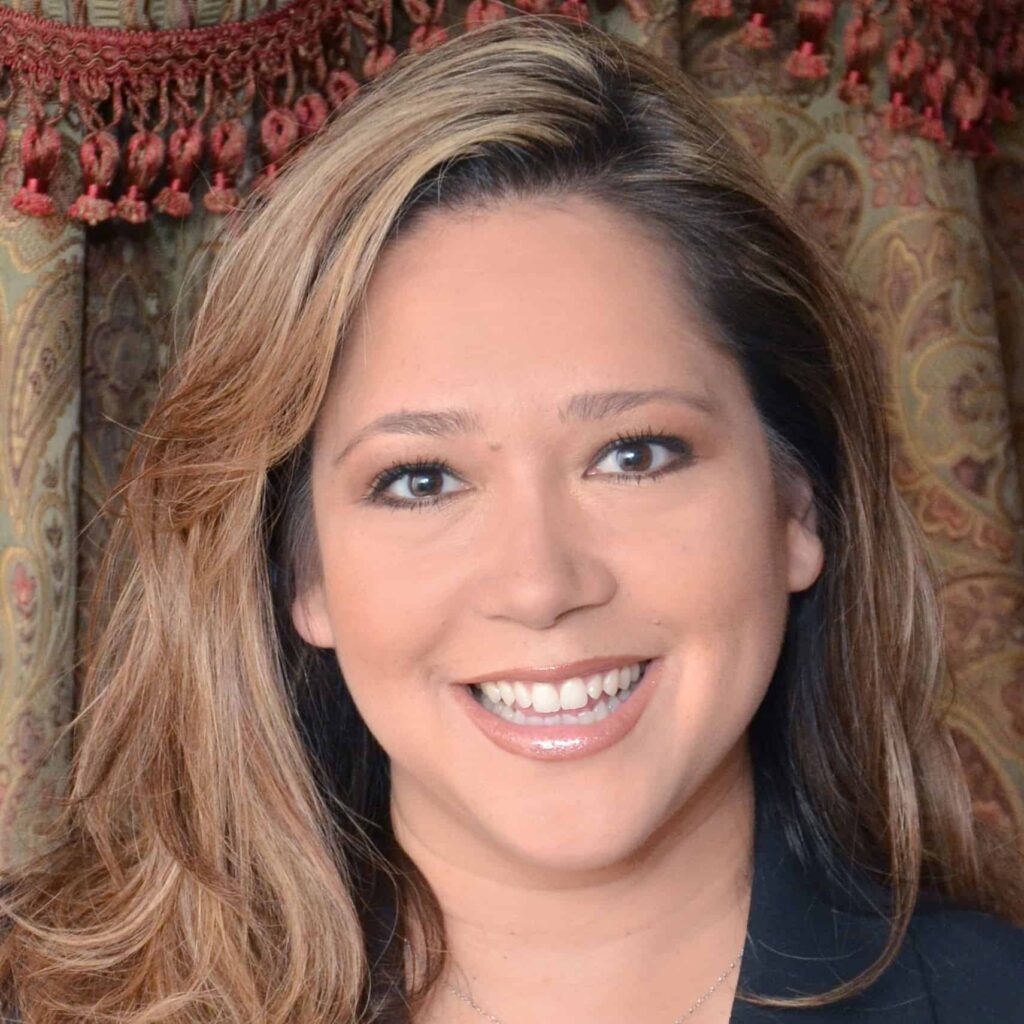In the latest episode of The Charity Charge Show, hosts Matt and Grayson sit down with Dana Yaari, Emergency Response Team Lead for the monday.com Foundation. Dana shares her unconventional journey from investment banking to humanitarian work and how she now helps frontline aid organizations operate faster, smarter, and more collaboratively during times of crisis.
From Wall Street to Humanitarian Work
Dana’s career began in investment banking, where she spent a decade navigating high-pressure environments. Yet, she eventually realized she wanted to channel her skills into something more impactful.
That realization led her to disaster zones across South Sudan, Dominica, and Haiti, where she experienced firsthand the challenges of emergency response—particularly the lack of real-time data and efficient systems.
It was those experiences that ultimately brought her to monday.com, where she now leads efforts to equip aid organizations with the tools they need to scale their impact.
Scaling Impact Through Technology
At the heart of monday.com’s humanitarian efforts is a simple but powerful mission: helping aid organizations respond faster and more effectively.
The Emergency Response Team (ERT) provides pro bono support to nonprofits and humanitarian agencies, creating custom workflows and digital tools that streamline everything from:
Needs assessments in the field, with real-time dashboards for decision-making
Aid distribution systems to track inventory and deliveries
Volunteer coordination tools to safely onboard, assign, and manage large numbers of community helpers
By transforming processes that once relied on spreadsheets, emails, or WhatsApp, monday.com enables frontline responders to operate with clarity and efficiency, even amid chaos.

Balancing Immediate Needs with Long-Term Solutions
One of the central challenges in disaster response is balancing urgent needs—such as rescuing individuals or delivering food—with building long-term systems that strengthen organizations for the future.
Dana explained that monday.com focuses first on workflows that save the most time in the first days of a disaster, then supports organizations in expanding their systems for ongoing preparedness. This capacity-building approach ensures that nonprofits continue to benefit from these tools long after the initial crisis passes.
Real-Time Data and Donor Transparency
Another key theme in the conversation was the role of real-time data. From hurricanes in Florida to floods in Argentina, Dana emphasized how quickly updated dashboards empower organizations to request resources, report to donors, and coordinate across multiple agencies.
This transparency not only strengthens operations but also builds donor trust, showing clearly where resources are going and the impact being made.
Localization: The Future of Emergency Response
Looking ahead, the monday.com Foundation is investing in localization—partnering with consultants and humanitarian experts within each region to onboard nonprofits before disasters strike. This approach builds trust, strengthens preparedness, and allows organizations to hit the ground running when emergencies occur.

Lessons for All Nonprofits
While much of Dana’s work focuses on disaster relief, her advice resonates with all mission-driven organizations: nonprofits, like businesses, must embrace efficiency, collaboration, and technology to maximize impact.
Through programs like Monday for Nonprofits, eligible organizations can access 10 free seats and steeply discounted licenses, opening the door to better project management, grant tracking, and team collaboration.
Key Takeaways from the Episode
Technology is not a “nice to have”—it’s essential. Real-time data and organized workflows save lives.
Capacity building matters as much as speed. Training teams to use tools before disasters creates resilience.
Localization builds trust. Empowering local experts ensures smoother adoption and scalability.
All nonprofits benefit from efficiency. Whether in disaster response or education, streamlined operations free teams to focus on mission.
Podcast Transcript
Matt: Welcome everyone to The Charity Charge Show. My name is Matt, and I’m joined by my co-host, Grayson. Today we’re excited to be speaking with Dana Yaari, Emergency Response Team Lead for the monday.com Foundation. Dana, thanks so much for joining us.
Dana: Thank you very much for having me.
Grayson: To kick things off, could you share a little about your background and what led you into nonprofit and humanitarian work?
Dana: Absolutely. My path is a bit unconventional. I actually started nearly 20 years ago in investment banking, spending about a decade on Wall Street and in firms around the world. Eventually, I realized I wanted to do something different—something high intensity but also more meaningful.
That’s when I joined an aid organization and began working in disaster zones like South Sudan, Dominica, and Haiti. I quickly discovered my passion for humanitarian work, but I also noticed major gaps in efficiency and real-time coordination. That realization is what ultimately brought me to monday.com.
Matt: That’s incredible. Tell us more about your role with monday.com. What does your team do in disaster situations?
Dana: Our mission is to scale the impact of disaster response. We help aid organizations and first responders operate faster and more efficiently. When a disaster strikes, our team goes into the field and builds quick digital tools to help them manage needs assessments, coordinate aid delivery, track volunteers, and see real-time data from the ground.
We also focus on preparedness. By training organizations to use monday.com before emergencies happen, we build capacity so they’re ready to respond immediately when needed. Importantly, all of this support is provided pro bono through the monday.com Foundation.
Grayson: What does success look like for your team? Is it speed, coordination, or something else?
Dana: It’s all of those things—speed, coordination, lives impacted, and collaboration. But the most important measure for us is capacity. Success means teams on the ground are fully equipped with the tools they need to make their work easier and more effective.
When I was a first responder, one of the hardest parts was simply knowing what was happening in real time—where to go, what was needed, and what to deliver. Building that capacity within organizations is what truly defines success for us.
Matt: For those unfamiliar, could you explain how the monday.com platform actually works in these scenarios?
Dana: Sure. At its core, monday.com is a collaborative work management tool. Think of it like digital Lego blocks—you can put them together in endless ways to build whatever workflow you need.
In disaster response, that might look like:
Needs assessments: Field teams collect data via simple mobile forms, which automatically flow into dashboards so HQ teams see real-time conditions.
Aid distribution: Tracking food, water, and supplies to ensure they reach the right shelters or households.
Volunteer coordination: Onboarding, validating, and assigning tasks to the many people who want to help in the first few days after a disaster.
The platform is flexible enough to manage anything from inventory to beneficiary mapping, and it keeps everything visible, collaborative, and accountable.
Grayson: That really resonates. Here in Austin, we recently had severe Independence Day flooding. The governor even said there were too many volunteers showing up without systems to manage them. Did your team work in Texas?
Dana: Yes. Texas is a perfect example. In those first chaotic days, there was tons of information but nowhere to consolidate it. We supported several organizations—one delivering food kits, another managing shelters.
Because many of these groups had already been trained on monday.com from previous disasters, they could immediately deploy their systems. That saved critical time and allowed them to reach people more effectively.
Matt: How do you balance urgent needs during a disaster with building long-term systems?
Dana: In the first days, we focus on workflows that provide the most immediate impact—things like tracking missing people or getting food and shelter to families. A small digital process can save organizations 80% of their time in those moments.
For the long term, the beauty of monday.com is its flexibility. Once organizations get comfortable, they expand their usage with automations and even AI features. Our goal isn’t to build them a one-time system, but to empower them to continue adapting and scaling.
Grayson: You’ve seen this work evolve firsthand. How has emergency response changed since you first entered the field?
Dana: The shift has been dramatic. Back in 2018 or 2019, we were trying to manage disasters with emails, Excel spreadsheets, and maybe WhatsApp. It was chaos.
Now the humanitarian sector recognizes that digital transformation isn’t optional—it’s essential. With resources shrinking and funding cuts, efficiency matters more than ever. I’ve also seen more tech companies entering this space, which is encouraging. Collaboration between technology and humanitarian response is growing every year.
Matt: Many of our listeners run nonprofits outside of disaster response—education, food, health, and more. What lessons from your work apply to them?
Dana: No matter the sector, nonprofits need to operate as efficiently as for-profits. That means embracing tools for project management, CRM, grant tracking, and collaboration.
Through Monday for Nonprofits, organizations can access 10 free seats and discounted plans. It’s a fantastic way to start building systems that make your operations faster and more organized—so you can focus on your mission.
Grayson: What’s next for your team?
Dana: I’m most excited about our localization strategy. Instead of flying in international teams, we’re working with local humanitarian experts in countries like the Philippines and Mexico.
They help onboard organizations before disasters and provide support in the local language and context. It builds trust, ensures better adoption, and prepares communities to respond immediately when crises happen.
Matt: That’s incredible. For nonprofits listening, how can they get involved with your work?
Dana: If you’re a nonprofit in general, check out Monday for Nonprofits. If you’re a disaster response or humanitarian agency, visit mondayert.org. And more broadly, I encourage every NGO to explore digital tools—whether it’s monday.com or another platform. The right technology will save you time, money, and resources.
Matt: Dana, thank you so much for joining us. This was an inspiring conversation.
Dana: Thank you both—it’s been a pleasure.
















